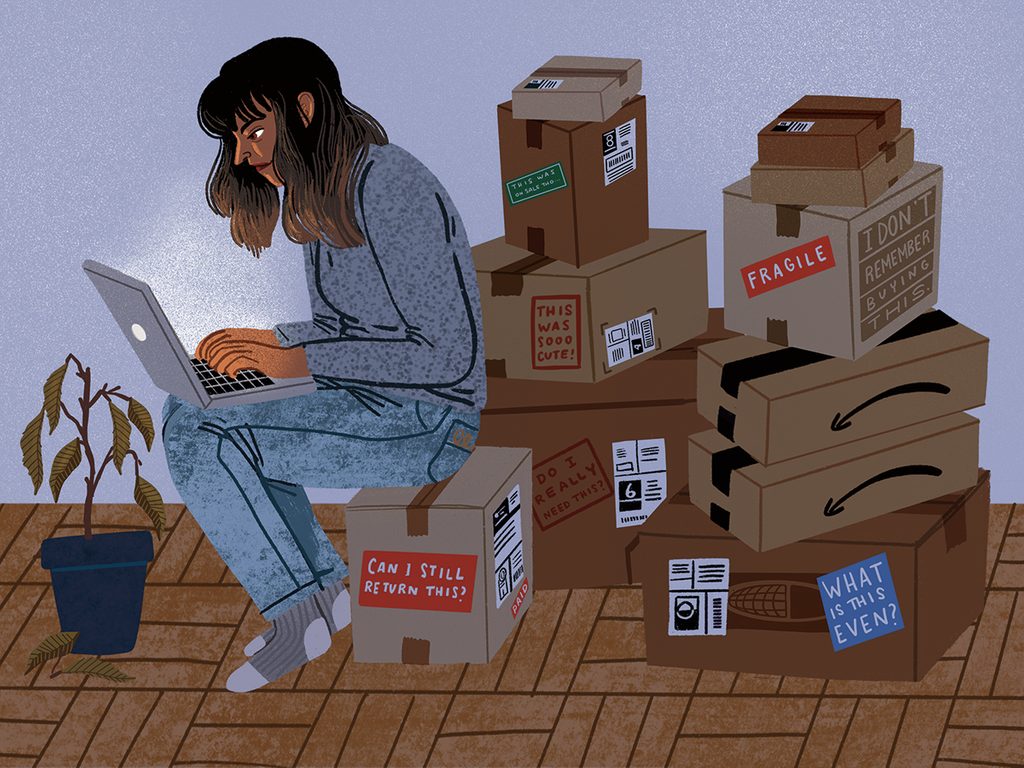Do You Have a Healthy Online Shopping Habit?

An expert shares a few ways to curb the habit and save money.
It’s probably safe to say your online shopping increased in 2020, most likely out of pure necessity. But what happens when your seemingly innocent online purchasing becomes a financial problem? Even if you don’t think you’re buying a lot (despite a package arriving at your home pretty much every day), the reality usually hits with the arrival of your credit card bill.
Although physical-distancing restrictions will continue to make online shopping a viable option, how can you avoid credit card statement shock? I encourage people to start with a curious and compassionate approach, and consider that some of that shopping is a way to deal with anxiety brought on by the pandemic.
(Related: I Had $1.11 in Savings. Here’s How I Improved My Relationship With Money)
If your credit card balances are racking up, don’t be too hard on yourself. Instead, be curious about why you may be making these purchases. Remember, this isn’t about stopping online shopping altogether; it’s about approaching your online spending in a different way that aligns with your money goals.
The key to curbing unnecessary spending is to start with awareness of the usual suspects: the when, where and why. Has most of your online spending been with your favourite clothes retailer? Were these purchases made within specific times and/or days of the week? Performing this kind of audit will expose the triggers that lead you to want to buy the latest loungewear or facial products or [insert whatever your favourite thing is here!].
Once you’re aware of your triggers, it’s time to create practices that will slow down the rate at which you’re making purchases and help validate whether you need to make them.
(Related: How to Save Money, Depending on Your Current Pandemic Situation)
Here are some approaches you can try:
- Create a list of things you need, and only purchase items from that list.
- Avoid buying sale items or services that aren’t on your list just because there’s a discount — that’s just distraction buying!
And here are some questions to ask yourself before clicking “add to cart.”
- Why do I need this now?
- Do I have something like this already in my home that I am not using or can’t locate?
- Is what I plan to buy going to be used within the next 30 days and more than once?
- Am I currently feeling bored, annoyed, frustrated, sad or hungry?
- Do I have the money for this in my bank account? And will using that money mean I won’t be able to pay for something else?
Implementing these strategies will help you consciously spend online in a financially and mentally healthy way and will hopefully mean a lot less anxiety when your credit card statements arrive.
Nechelle Bartley is a financial strategist and the founder of Money Basics Strategy Services. She helps women transform their relationship with money to create wealth-building habits.




